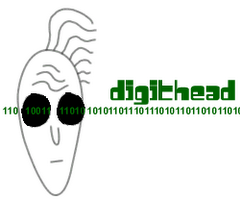On-line education is blossoming in a virtuous cycle of innovation, threatening disruption to expensive traditional universities and opening access to higher learning for anyone with an internet connection and a curious mind.
For developers, the on-line education boom means rich opportunities to learn, to create learning environments, and to analyze the data collected in the process of running massive open online courses - hacking education itself.
Coursera, an early leader, signed up 17 more universities on top of the 12 that joined in July and are now offering 198 classes from 33 schools.
Founders Daphne Koller & Andrew Ng published an article in Forbes, Log On and Learn: The Promise of Access in Online Education. Koller, whose "Probabilistic Graphical Models" strained my few remaining brain cells, spoke at TED on What we’re learning from online education
A Seattle Times piece on the recent wave of educational startups featured enthusiastic comments from Ed Lazowska at UW and Vitalina Komashko at Sage Bionetworks.
Why some of the best universities are giving away their courses Each has answers. But basically it comes down to these: To serve the greater good. To win a public-relations race. And, most especially, to enhance reputations.
On-line education is a perfect complement for hotness that is data science. Not only is it a means for transferring trendy skills, but the data collected in the process should have amazing things to teach us about learning.
Not all the action is in cyber-space, either. If you have a hungry mind that needs feeding, you can:
- study for coursera classes at meetups in 928 cities around the world
- study improvisation with Jazz vibraphonist Gary Burton (Your neighbors will love it!)
- go to Hacker School, Startup School or hacker dojo
- attend Biohacker Boot Camp at genspace
- learn about the Design of Computer Programs from the CTO of Google
The only limit is your own bandwidth. That, and the tolerance of your spouse.
The flashy technology is new but, the ideal of open access to knowledge has been around for a long time. The Seattle Times quotes Dave Cillay, executive director of WSU Online, "We've had MOOCs and open learning resources for centuries. They're called libraries."
Echoing Carnegie and his libraries, the Gates Foundation announced in June $9 million in grants for on-line secondary education, including a million to the MIT/Harvard venture edX.
I remember poking my head into a cinder-block schoolhouse in a tiny village in Laos, back in my traveling days. There were 2 books; a book that appeared to be equal parts farming manual and government propaganda and another of Buddhist scripture. The potential to mitigate that kind of information-poverty in the remote corners of the world is one of the most exciting aspects of on-line education.
Building on previous innovation is key to progress, especially in science and technology. Hacking education will help information flow faster, getting people to the frontier where they can start pushing the envelope and maybe make the world a slightly better place. That's why these are exciting times for those that love learning.
More
Still don't believe me that there's a lot going on? Here's more Ed-tech news:
- Scaling higher education
- Economists Tyler Cowen and Alex Tabarrok introduced Marginal Revolution University. The first course offered at MRUniversity is Development Economics.
- An NPR story on Coursera Online Education Grows Up, And For Now, It's Free
- College 2.0: Inside the Coursera Contract: How an Upstart Company Might Profit From Free Courses
- The School of Data is a collaboration between the Open Knowledge Foundation and P2PU (Peer to Peer University)
- University of the People: A Free Online University Tests the Waters
- CodeNow teaches coding to kids in DC. "Coding is the new literacy. It gives individuals the power to innovate and create."
- Three Tips For a New Wave of Ed-Tech Entrepreneurs from the founder of ShowMe









 R Bloggers
R Bloggers
Nicholas Carr asks in MIT's Technology Review whether "higher education about to get the overhaul it needs?" in The Crisis in Higher Education
ReplyDeleteTake a look at some of the work that my uncle has done at the University of Minnesota: https://open.umn.edu
ReplyDeleteFree digital textbooks which are reviewed by faculty and available under CC license for reuse and remix.
Open textbooks for open access courses. Very cool.
Delete